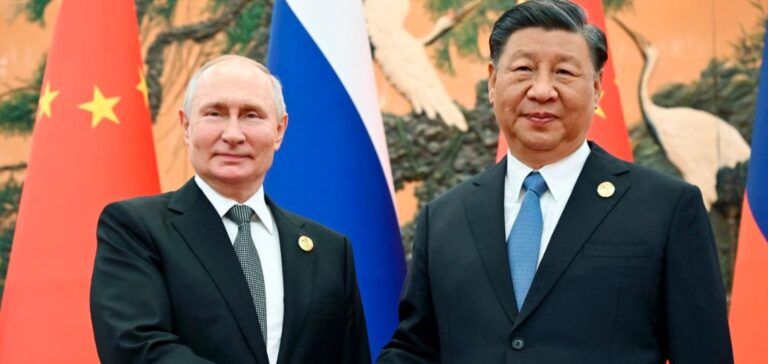Russian President Vladimir Putin will pay a visit to China this week, aiming to secure stronger support from Beijing for his war in Ukraine. The visit, scheduled for May 16 and 17, represents Putin’s first foreign trip since his re-election in March, and comes at a time when Sino-Russian relations are under increasing pressure from Western sanctions.
Enhanced Energy Cooperation
Since the start of Russia’s invasion of Ukraine in February 2022, Moscow and Beijing have intensified diplomatic and trade relations. In response to Western criticism, China has stepped up its imports of Russian gas and oil at reduced prices, becoming a crucial economic partner for Russia. In 2023, Sino-Russian trade reached $240 billion, according to China Customs. Russia’s growing dependence on China underlines the strategic importance of energy cooperation between the two countries.
Impact of Chinese Sanctions and Reactions
However, Chinese exports to Russia declined in March and April 2024, due to the threat of US sanctions against financial institutions supporting the Russian war effort. These potentially devastating sanctions for an already fragile Chinese economy have prompted Chinese banks to adopt a more cautious approach to their dealings with Russia, suspending or scaling back some of their operations.
Strategic and Diplomatic Challenges
China, while seeking to maintain stable relations with the West, must navigate carefully in its support for Russia. “Chinese banks are worried about the impact on their reputation and are looking to avoid big penalties,” explains Elizabeth Wishnick of the CNA think tank. What’s more, Ali Wyne of the International Crisis Group points out that Beijing might consider supporting Moscow in less visible ways, such as via small Chinese banks or unofficial financing channels.
Outlook
The meeting between Putin and Xi Jinping could lead to the signing of new agreements and increased trade, while reaffirming their shared opposition to American hegemony. However, China remains conscious of the importance of its relations with the West, and is seeking to avoid severe sanctions. The current situation highlights the complex strategic challenges facing Beijing and Moscow in the current geopolitical context.





















